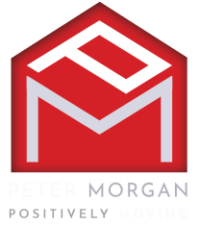
Did you know, four in 10 (41%) 18 to 24-year-old homeowners have experienced a mortgage rejection before buying their current home. That compares to 15% of 35 to 44-year-olds and 8% of those aged 45 to 50.
One in six (16%) mortgage holders have overcome being rejected for a mortgage in the past, and over half (54%) of homeowners who were rejected took longer than three months to be accepted for another mortgage – which proves that getting a mortgage is not something to be complacent about.
The top reasons for a declined mortgage application:
- Adverse credit
- Low credit score
- Income is too low
- Affordability (loan applied for is too high)
- Little evidence of income (recently self-employed)
- The property does not meet lender requirements
- Discrepancies with the underwriter
- The correct lender is not approached from the outset
If you’re a first-time buyer thinking of taking out a mortgage, this blog covers some of the main ways you can increase your chances of it being approved.
Some of the tasks will need to be carried out months before applying, so make sure you plan ahead and fully-understand the situation you need to be in before applying as all attempts are recorded on your credit file for a year and will have a negative impact.
1. Boost your credit score
This isn’t something that can be fixed overnight, unfortunately, it takes time to improve. Lender’s need to ensure you’re a profitable customer and can make your repayments. It does this by assessing your credit score to try and predict your future behaviour based on your past.
If your score is poor, almost all lenders will reject you. Here are some quick tips to help improve your credit score:
- Get on the electoral roll at your current address
- Check your credit file and deal with any negative issues
- Check the addresses on your credit file
- De-link from any past relationships of shared finances
- Spend on a credit card and make monthly repayments
- Never miss a payment (or pay late) on direct debits or credit cards
- Keep other applications to a minimum in the months before a mortgage
- Never withdraw cash on a credit card
If you’ve got issues such as county court judgments for unpaid bills on your credit file, these are wiped from your record after six years, so wait until these have been cleared before you apply.
2. Get a healthy deposit in place
The bigger your deposit, the less you’ll need to borrow. This means you’ll be considered by a wider pool of lenders and will have a higher chance of the mortgage being approved.
Just putting down 0.1% more than the minimum deposit required can boost your chances of being accepted, or at least cut the amount of documentation the lender wants to see. For example, if you’re applying for a 75% maximum LTV loan on a £100,000 property, instead of putting down the minimum £25,000, put down £25,100. That extra 0.1% could increase your chances and even speed up the application process.
3. Stay out of your overdraft
If you’re constantly using your overdraft, this could be seen as living close to the edge of your finances, so avoid it if possible. Some lenders may even refuse to lend to you if you’ve used your overdraft at all in the last three months. If you’ve had to use your overdraft because you’ve been struggling, should you really be getting a mortgage?
4. Avoid payday loans like the plague
Not only are the interest rates extortionate, but some mortgage lenders will simply reject anyone who’s got a payday loan as it indicates poor money management and lack of funds.
5. Close unused credit cards
While having a credit card and making the monthly repayments is healthy for your credit score, if you have lots of unused credit available, this can be seen as negative. This is because you have the credit available to borrow large amounts on a whim without passing further credit checks.
Even if you’ve paid an old card off and stopped using it, it’ll still show up as active and available credit unless you shut it down. If you’re not using it and won’t need it in the near future, it’s a good idea to close the account.
6. Provide all the necessary paperwork
The application process will run much smoother if you provide everything needed. It’s also vital you’re transparent in the application as failing to do so will increase your chance of a declined application then and in the future.
7. Use a broker
While you can apply for a mortgage yourself, a broker can increase your chances of the mortgage being approved down to their extensive experience in the industry. They also have access to the whole of the market and have built up strong relationships with lenders which means they may also be able to get you the best deal.


